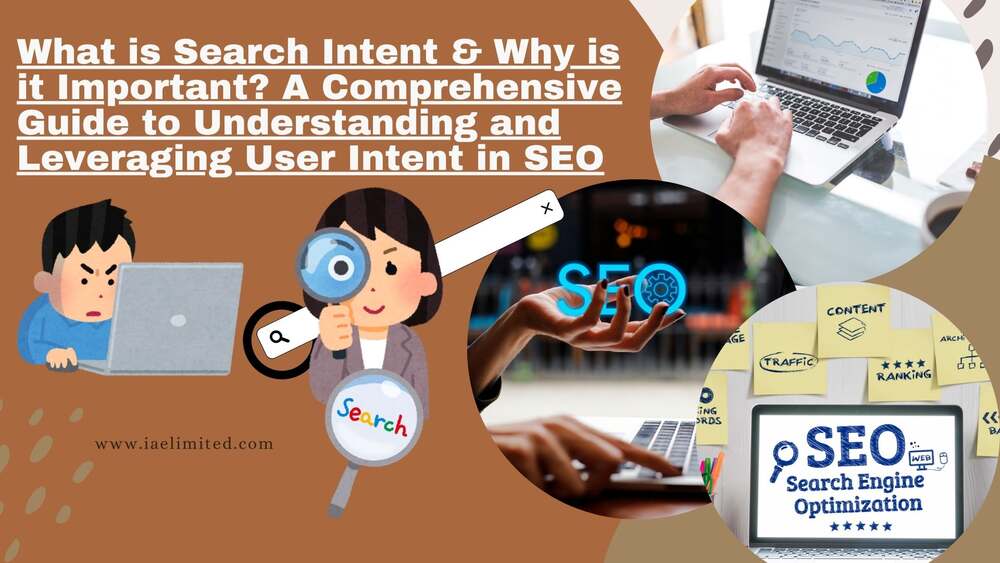
Introduction to Advanced SEO
Table of Contents
For experienced digital marketers, SEO extends beyond basic optimization techniques. Advanced SEO focuses on refining strategies to gain a competitive edge, leveraging technical insights, data analytics, and cutting-edge tools.
This guide will dive you into the complexities of advanced SEO to help you drive more impactful results, just like our recent article on, How to Do SEO for Beginners: A Comprehensive Guide.
Deep Dive into SEO Algorithms
Understanding search engine algorithms is critical for advanced SEO. Google’s core updates, such as Hummingbird, RankBrain, and BERT, have changed the landscape by prioritizing context, relevance, and user intent. Staying ahead means continuous learning and adapting your strategies to align with these evolving algorithms.
Advanced Keyword Research Techniques
Advanced keyword research goes beyond basic volume and difficulty metrics. Focus on:
- Semantic SEO: Understanding the intent behind search queries and incorporating LSI (Latent Semantic Indexing) keywords to cover a topic comprehensively.
- Predictive Analysis: Using tools like Google Trends and Ahrefs to predict keyword trends and align content with emerging searches.
- Entity-Based SEO: Focusing on entities recognized by search engines to improve relevance and authority.
On-Page SEO: Beyond the Basics
Elevate your on-page SEO by implementing sophisticated tactics:
- Content Hubs and Topic Clusters: Create interconnected content around core topics to enhance topical authority and improve internal linking structures.
- Schema Markup Mastery: Implement advanced structured data types, such as FAQ schema, How-To schema, and Product schema, to enhance SERP features.
- User Experience (UX) Integration: Optimize for Core Web Vitals (LCP, FID, CLS) to enhance site speed, interactivity, and visual stability.
Off-Page SEO: Building Authority and Trust
Off-page SEO for advanced users involves strategic link-building and brand management:
- High-Quality Link Acquisition: Develop relationships with authoritative sites for guest posts, resource page links, and digital PR campaigns.
- Content Syndication: Distribute content across high-DA platforms to increase visibility and backlinks.
- E-A-T (Expertise, Authoritativeness, Trustworthiness): Focus on building a strong brand presence and online reputation, supported by credible backlinks and authoritative content.
Technical SEO: Enhancing Site Performance
Technical SEO is critical in optimizing the backend of your website:
- Advanced Crawling and Indexing: Use tools like Screaming Frog and Sitebulb to perform in-depth audits, identifying crawl errors, orphan pages, and redirect loops.
- JavaScript SEO: Ensure search engines can crawl and render JavaScript content correctly by using dynamic rendering or server-side rendering.
- XML Sitemaps and Robots.txt: Optimize your XML sitemap and refine your robots.txt file to guide search engine bots effectively.
Local SEO: Advanced Strategies
For businesses with a local presence, advanced local SEO techniques are crucial:
- Geo-Targeting and Hyperlocal SEO: Tailor content to specific regions, incorporating local keywords and optimizing for near-me searches.
- Advanced GMB Optimization: Use Google My Business (GMB) features like posts, Q&A, and product/service listings to engage with local customers.
- Local Link Building: Obtain backlinks from local news sites, industry-specific directories, and community blogs.
Advanced SEO Tools and Analytics
Advanced SEO requires leveraging sophisticated tools and data analysis:
- Comprehensive SEO Suites: Utilize platforms like SEMrush, Ahrefs, and Moz for in-depth analysis, keyword research, and competitor tracking.
- Advanced Google Analytics Setup: Implement custom dashboards, goals, and events to track user behavior and conversion paths.
- Log File Analysis: Use tools like Screaming Frog or Splunk to analyze server logs for insights into crawl behavior and site performance.
Content Strategy and Advanced SEO
Creating a content strategy that aligns with advanced SEO involves:
- Content Gap Analysis: Identify and fill content gaps to outperform competitors in SERPs.
- Content Repurposing and Optimization: Regularly update existing content to improve its relevance, add new insights, and optimize for additional keywords.
- Interactive Content: Incorporate interactive elements like quizzes, calculators, and polls to enhance engagement and dwell time.
Monitoring SEO Performance at an Advanced Level
Advanced SEO monitoring requires deep analysis and reporting:
- Custom SEO Dashboards: Use tools like Google Data Studio to create custom SEO dashboards that integrate data from multiple sources.
- Competitor Analysis: Regularly assess competitor strategies using tools like SEMrush’s Competitor Gap Analysis and SimilarWeb.
- Algorithm Tracking: Keep track of algorithm updates using tools like MozCast and Rank Ranger, and adjust your strategies accordingly.
Advanced Link-Building Strategies
Sophisticated link-building goes beyond basic outreach:
- Digital PR Campaigns: Leverage PR techniques to earn high-quality backlinks from top-tier publications.
- Broken Link Building: Find broken links on relevant sites and offer your content as a replacement.
- Advanced Outreach: Personalize outreach emails and use tools like Pitchbox to streamline the process.
International SEO Strategies
Optimizing for a global audience requires a different approach:
- Hreflang Implementation: Correctly use hreflang tags to target content to users based on their language and region.
- Content Localization: Adapt content to reflect local cultural norms, language, and search behavior.
- Multi-Regional Site Structure: Decide between subdirectories, subdomains, or separate ccTLDs based on your global strategy.
Advanced SEO for E-Commerce
E-commerce SEO requires attention to detail and customer behavior: For more on this, check out our post on E-commerce Digital Marketing: 2024 Beginner’s Guide.
- Product Schema Markup: Use structured data to enhance product listings in search results.
- Faceted Navigation: Optimize faceted navigation to ensure it’s crawlable and doesn’t create duplicate content issues.
- Dynamic Content Optimization: Use dynamic optimization strategies for pages with changing content, like seasonal products or promotions.
Using AI and Machine Learning in SEO
AI is reshaping the future of SEO:
- AI-Powered Content Creation: Use AI tools like GPT-based content generators to create high-quality content faster.
- Predictive SEO: Leverage machine learning algorithms to predict search trends and adjust your strategy preemptively.
- AI for Data Analysis: Use AI to analyze vast amounts of data quickly, identifying patterns and opportunities that manual analysis might miss.
Advanced Mobile SEO Techniques
Mobile SEO is increasingly important as mobile searches dominate:
- AMP (Accelerated Mobile Pages): Implement AMP to improve mobile load times and enhance user experience. check out this article on how to Implement AMP pages to increasingly dominate the search engine using mobile SEO.
- Progressive Web Apps (PWAs): Consider building PWAs to offer a native app-like experience with SEO benefits.
- Mobile-First Indexing: Ensure your mobile site is fully optimized, as Google predominantly uses the mobile version for indexing and ranking.
SEO and Data Science Integration
Data science can elevate your SEO strategy:
- Predictive Modeling: Use data science techniques to forecast traffic trends and SEO outcomes based on historical data.
- SEO Automation: Automate repetitive SEO tasks like reporting, site audits, and rank tracking using scripts and APIs.
- Custom Analytics Solutions: Develop custom analytics solutions to gather more precise insights and make data-driven decisions.
Emerging SEO Trends
Stay ahead with emerging trends in the SEO landscape:
- Voice Search Optimization: Adapt content for voice queries by focusing on natural language and question-based keywords.
- Search Intent Optimization: Go beyond traditional keyword targeting by optimizing for the different types of search intent—informational, navigational, transactional, and commercial.
- SERP Features Optimization: Aim for featured snippets, knowledge panels, and other SERP features to enhance visibility.
Future-Proofing Your SEO Strategy
Prepare for the future by focusing on:
- Content Quality and Depth: As search engines evolve, they increasingly reward in-depth, well-researched content that fully addresses user intent.
- User-Centric SEO: Prioritize user experience, ensuring your site is easy to navigate, accessible, and engaging.
- Sustainability in SEO: Focus on sustainable SEO practices that align with long-term goals rather than short-term gains.
Frequently Asked Questions (FAQs)
- How Can Advanced Learners Stay Updated on SEO Trends? Regularly read industry-leading blogs, attend webinars, and participate in SEO forums and conferences.
- What Role Does Machine Learning Play in Modern SEO? Machine learning helps in predictive analysis, content creation, and personalizing user experiences based on behavior patterns.
- How Important is User Experience in Advanced SEO? User experience is critical; it directly impacts metrics like bounce rate and dwell time, which influence rankings.
- Can Advanced SEO Strategies Be Automated? Yes, many advanced SEO tasks, like rank tracking and site audits, can be automated using scripts, APIs, and specialized tools.

In Conclusion
Advanced SEO requires a deep understanding of search engine behavior, user intent, and technical optimization. By staying updated with the latest trends, using advanced tools, and focusing on comprehensive strategies, you can maintain a competitive edge in the digital marketing landscape.
Keep experimenting, analyzing data, and refining your approach to achieve sustained success.





